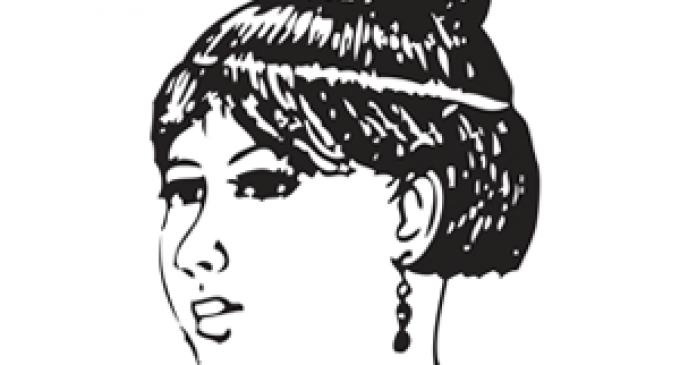Hair-dos of Myanmar Women in the British Colonial Days

After the British Annexation of upper Myanmar the whole country fell into the hands of the British Imperiatists and became a small state in the British Empire. The people of Myanmar, though they were ruled by the British colonialists, were patriotic minded and took up arms agaist them. The anti-British war had been waged for about five years thoughout the upper Myanmar until it was totally subdued by the troops of the British colonilists. Gradually peace and tranquility reigned supreme in the country.
The Myanmar women in those days strictly followed the old customs of religious practices and curtural lives. They painted their faces with thanakha and never wear make-up imported from the foreign countries. They wore htamein (sarong) stitched with ahte’hsin (black band of cloth) in their daily lives.
In keeping with tradition, the Myanmar women did not cut and curl their hair. They always kept up their long hair to be wound around a comb on their heads. The styles of keeping hair-dos always changed with the ages of women.
At the age of about ten the Myanmar girls started their hairstyle distinguished by a short fringe. When their age become round about sixteen the hairstyle changed into another pattern. There was a change over from _ of an adolescent girl to that of a woman whose long tresses are gathered in a bun. That was the time of transition from adolencent to woman hood.
‘Beekyawpat’ (bD;ausmfywf) being the hair-do with the hair wound around a comb on the head was worn by every Myanmar woman in their daily lives.
When the Myanmar women happened to attend the wedding reception or shinpyu (novitiation) or ear-boring ceremony they wore big beezadoun (knotted hair) on their heads.
A boy of about ten years of age saw his mother preparing to wear beezadoun on top of her head every day. When ever he woke up early in the morning, he met his mother preparing her beezadoun. As he looked on lying in the bed, his mother spread out her long and black hair on the back of her body and combed her long hair with a bamboo comb thoroughly in front of a dressing table.
Then she sprinkled her hair with drops of coconut oil and combed it again. Next, she set three bamboo combs on top of her head and wrapped her hair high around a set of these combs. Finally, she combed her big beezadoun (bD;qHwHk;) with a bamboo comb thorougly and smoothly. Her big beezadoun was of cylinderical form with rounded or oval-shaped hollow space measuring about 5½” in height, 6½” in diameter and 0.25” in thickness of the rim. Her beezadoun was not upright (vertical), but inclined about 15° to the back of her body. Her bezadoun was so brilliant and black with coconut oil that even every woman praised her beauty. His mother with big beezadoun on top of her head looked very smart and attractive. Sometimes, she put a coil of jasmine flowers in the hollow space of her beezadoun.
This woman went out for shopping every morning with big beezadoun and had stayed the whole day till sunset in the evening.
When there were marriage, shinpyu (novitiation) and ear-boring ceremonies, many women together with their husbands attended the celebration wearing big beezadouns ornamented with diamond combs and hairpins. In the marriage ceremony the bride sitting on the cushion on the stage together with the bridegroom drew the full attention from the audience because her body and beezadoun ornamented with jewelleries and flowers became quite pretty and attractive.
In those days every anyeint dancer and zat minthami [leading actress in zat (Myanmar drama)] also wore beezadoun while dancing on the stage together with zat minthar (leading actor). The Myanmar motion picture has also produced many female actresses to participate in their motion picture. There actress wore big beezadouns adorned with beautiful flowers and jewelleries.
Maung Khine Zaw
./wp-content/uploads/2018/10/Emirate-Online-TDY.png)


















There are no comments at the moment, do you want to add one?
Write a comment